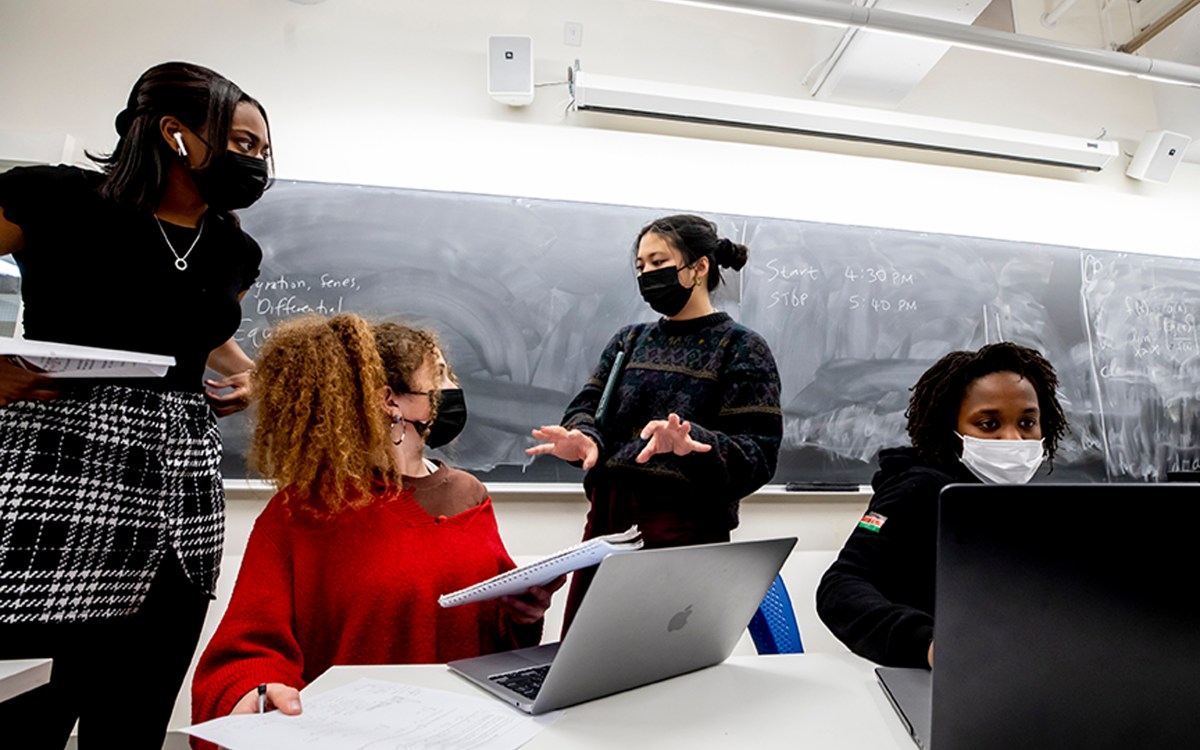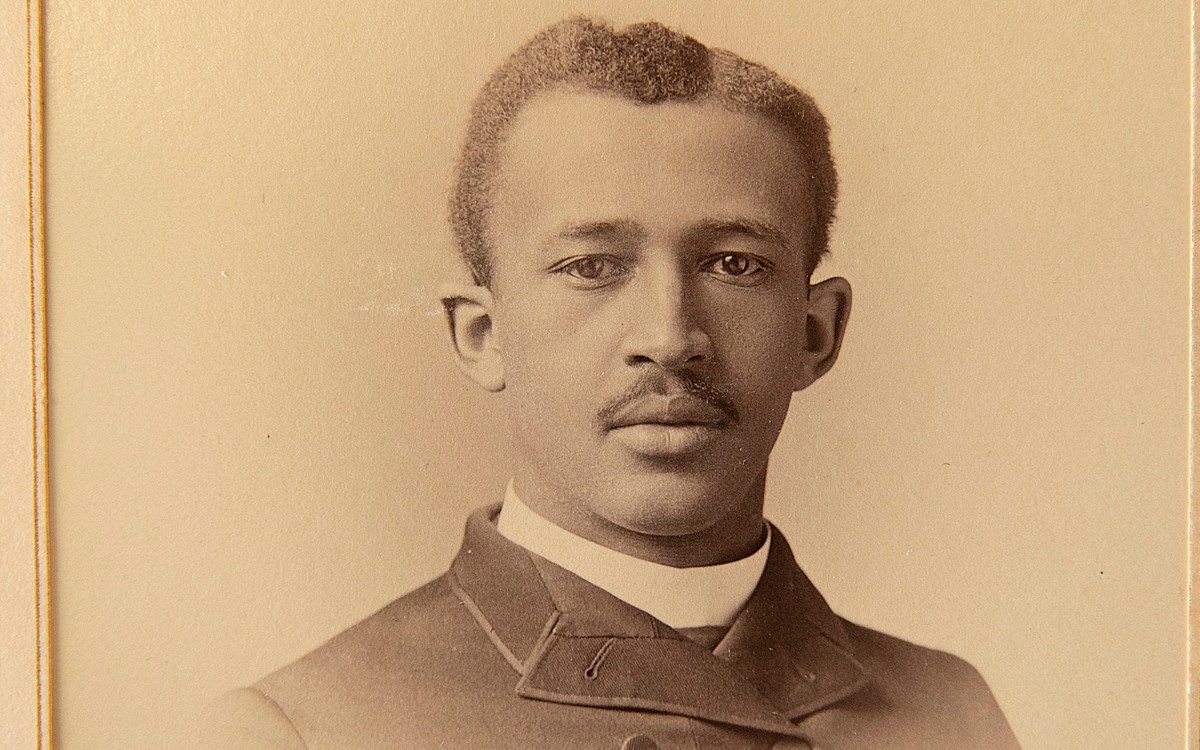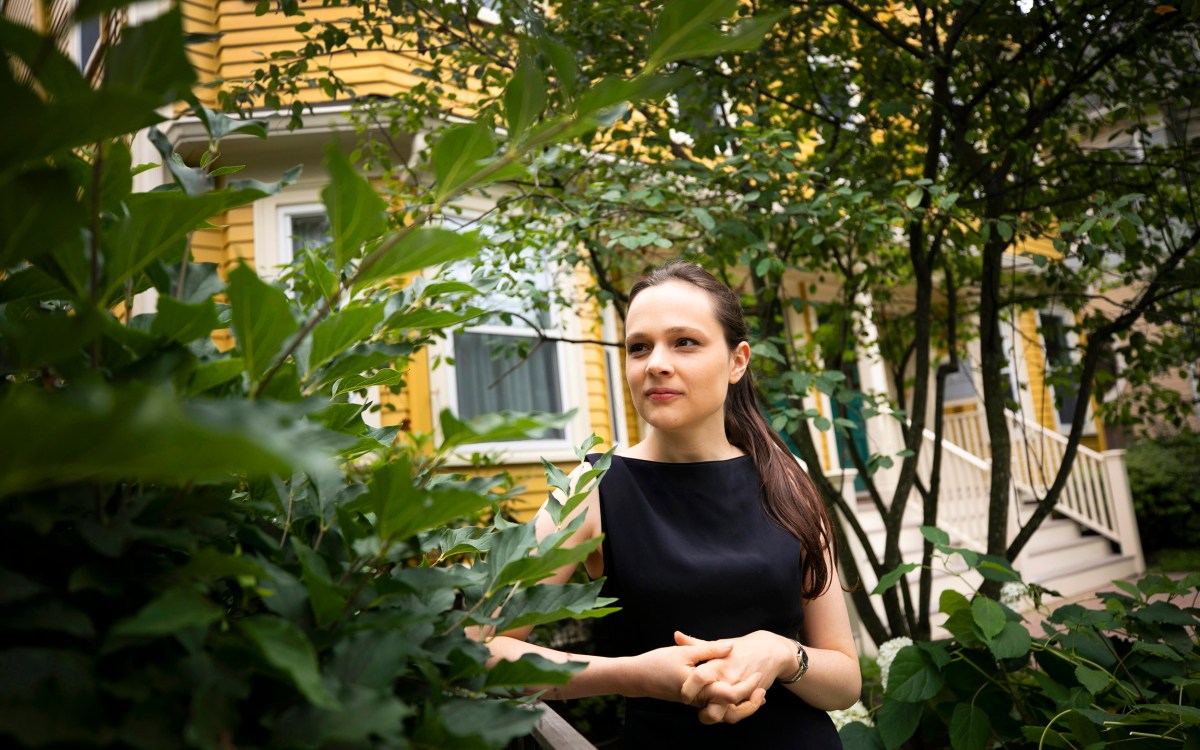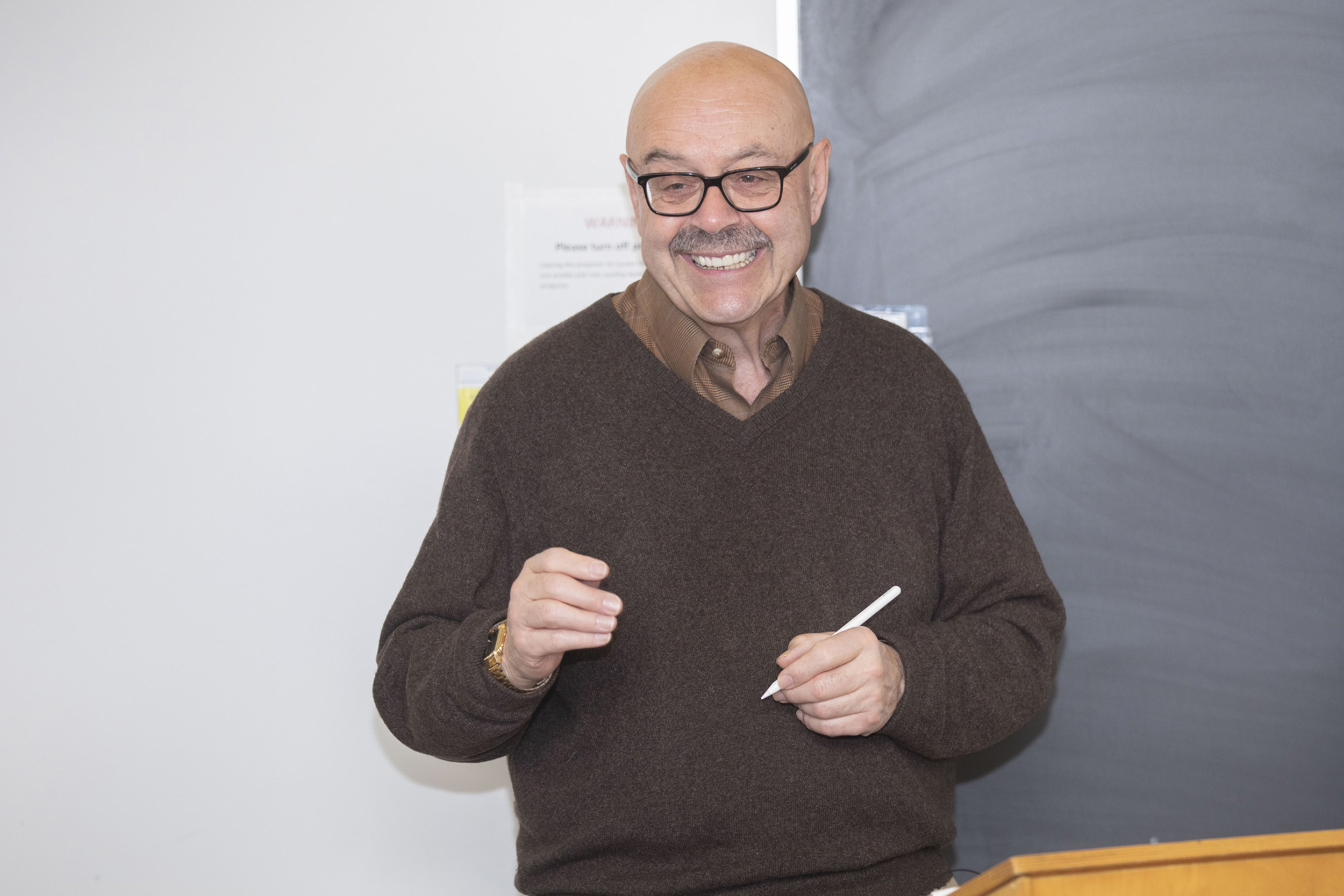
Sociology Professor Chris Winship gives final lecture for the quantitative research methods course he has been teaching for 40-plus years.
Photos by Kris Snibbe/Harvard Staff Photographer
Behind the data, a teacher who left his students transformed
Sociologist Chris Winship’s last class is cause for celebration, reflection
On a clear November morning, Chris Winship, the Diker-Tishman Professor of Sociology, was getting ready to begin the last class of the course on quantitative research methods he has been teaching for more than 40 years, first at Northwestern and for the past three decades at Harvard.
Meanwhile, students sat around the table browsing a 17-page handout and munching chocolate chip cookies brought by a teaching fellow. They were joined in the room by several of Winship’s colleagues and former students, who, following an academic tradition, had dropped by to watch him give the last lecture of the required course for sociology graduate students.
“I loved teaching this course all these years,” Winship said in an interview before the class. “The course helps students how to think about being a social scientist and how to think about their research. Too often in graduate training we focus on the details and the nitty gritty, and students cannot see the forest from the trees. This course focuses on helping them see the forest.” The purpose of the class, he added, is to answer the question: “How do we learn and know things from data?”
In a career spanning 42 years, Winship, who will formally retire in 2025, has gained a reputation as an intellectual leader in quantitative social science. He co-authored with his former student Stephen Morgan the book “Counterfactuals and Causal Inference: Methods and Principles for Social Research” (2007), which has sold nearly 40,000 copies and is often described as the “bible” of causal inference. He is also known for having trained a generation of scholars to be innovators in statistical methods in social science research.
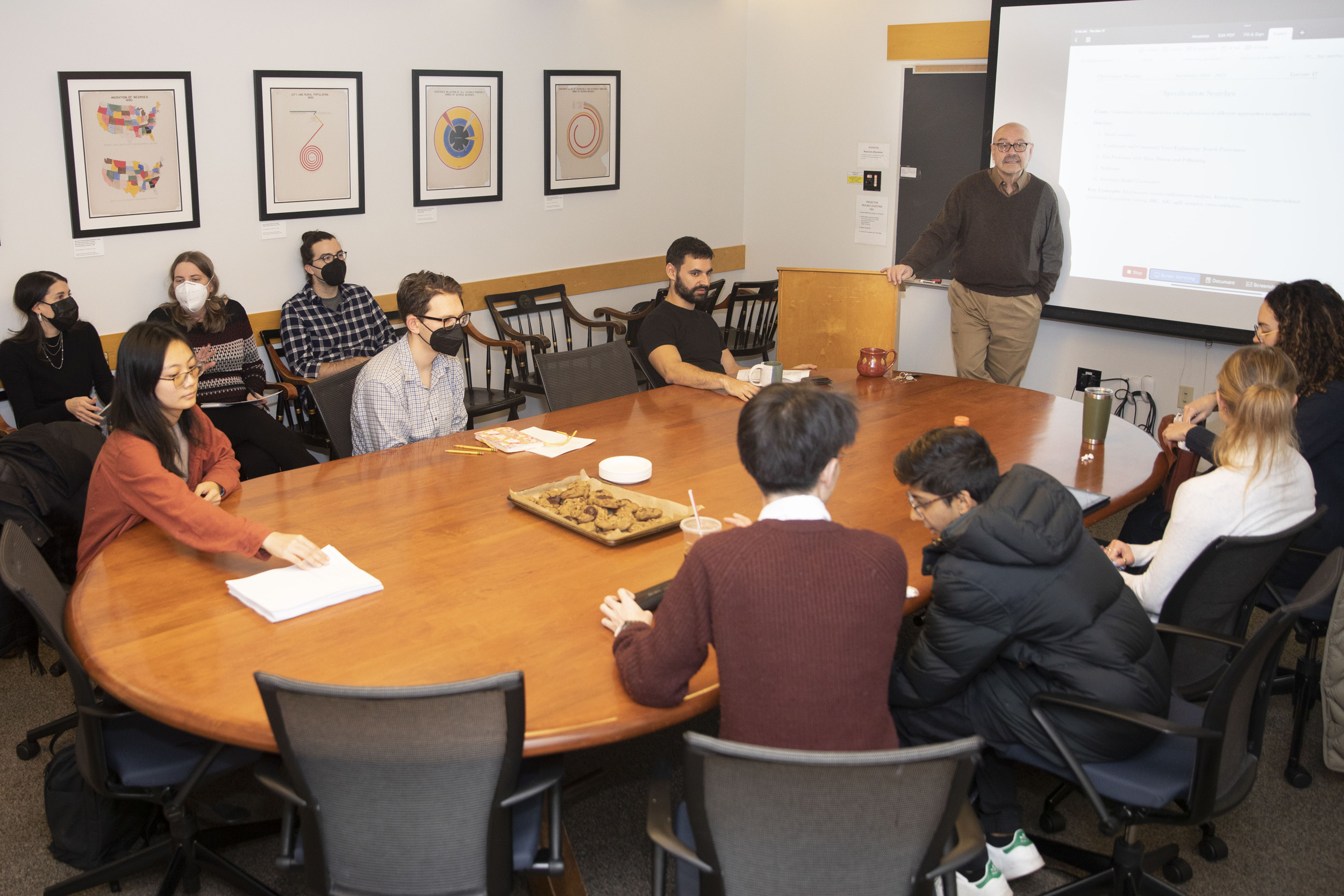
The next generation includes Marissa Combs, who is in her second year of sociology graduate studies. Winship made statistics and math approachable, she said, and his class helped students build a “statistical intuition” to prepare them for the problems they might run into when confronting data in the real world.
“As an early stage graduate student and someone who’s interested in quantitative methods, it’s been an invaluable course for me,” said Combs. “Chris works very diligently to make sure that students, no matter what their background is in quantitative training, come into the class feeling empowered to learn more and engage critically with the work.”
Colleague Gary King, the Weatherhead University Professor and director of the Institute for Quantitative Social Science, praised Winship’s contributions in developing new data analysis methods. “We are all his students, in a sense,” he said. “His scholarly works cause us all to think of the world in different ways and to think of how to analyze data in different ways.”
Winship is beloved by students for his personable manner and sympathetic ear, rooted in his upbringing as the child of therapists. The family joke, he said, was that his adolescent rebellion was to become a quantitative sociologist. Math came easily to him from a young age. In graduate school, he did postdoc studies with James Heckman, who would go on to win the Nobel Prize in economics in 2000.
“Too often in graduate training we focus on the details and the nitty gritty, and students cannot see the forest from the trees. This course focuses on helping them see the forest.”
Chris Winship
Winship’s lecture notes, which he shares with students, are legendary. They offset his moderate dyslexia and help him avoid writing incorrect formulas on the board, he said, chuckling. Some students keep the notes for years. Among them is Anthony Jack, now an assistant professor at the Graduate School of Education, who remembers the course as transformative.
“It really changed me,” said Jack, who has held onto Winship’s notes for 13 years. “This is a class that gets you to think about theoretical foundations of social inquiry. It makes you think about the what and the how. It is not just about statistics even though the course is focused on statistics.”
Leading the last class, Winship explained the intricacies of model searches and the problems of data mining, reminding students to be careful when analyzing information. He urged them to resist “torturing” the data because it may not yield, or “confess,” the hoped-for result. When the session was over, as Winship was joined in the classroom by his wife, Nancy, and their dog Chloe, a perky Coton de Tulear, students and visitors applauded.
Asked what he has learned from his students all these years, Winship put it this way: “We all do our best thinking when we think with others. My students have been fantastic people to think with.”



